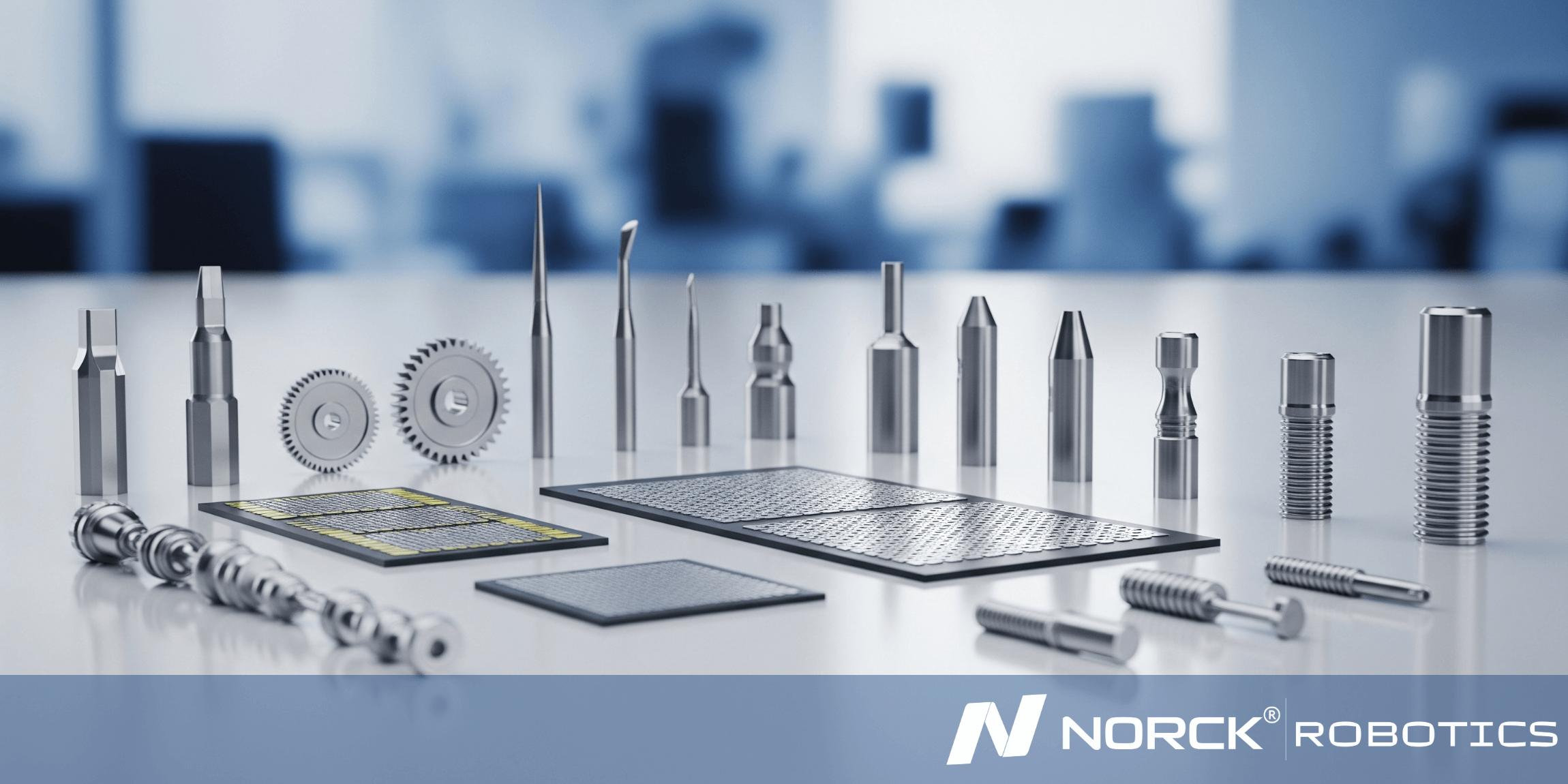
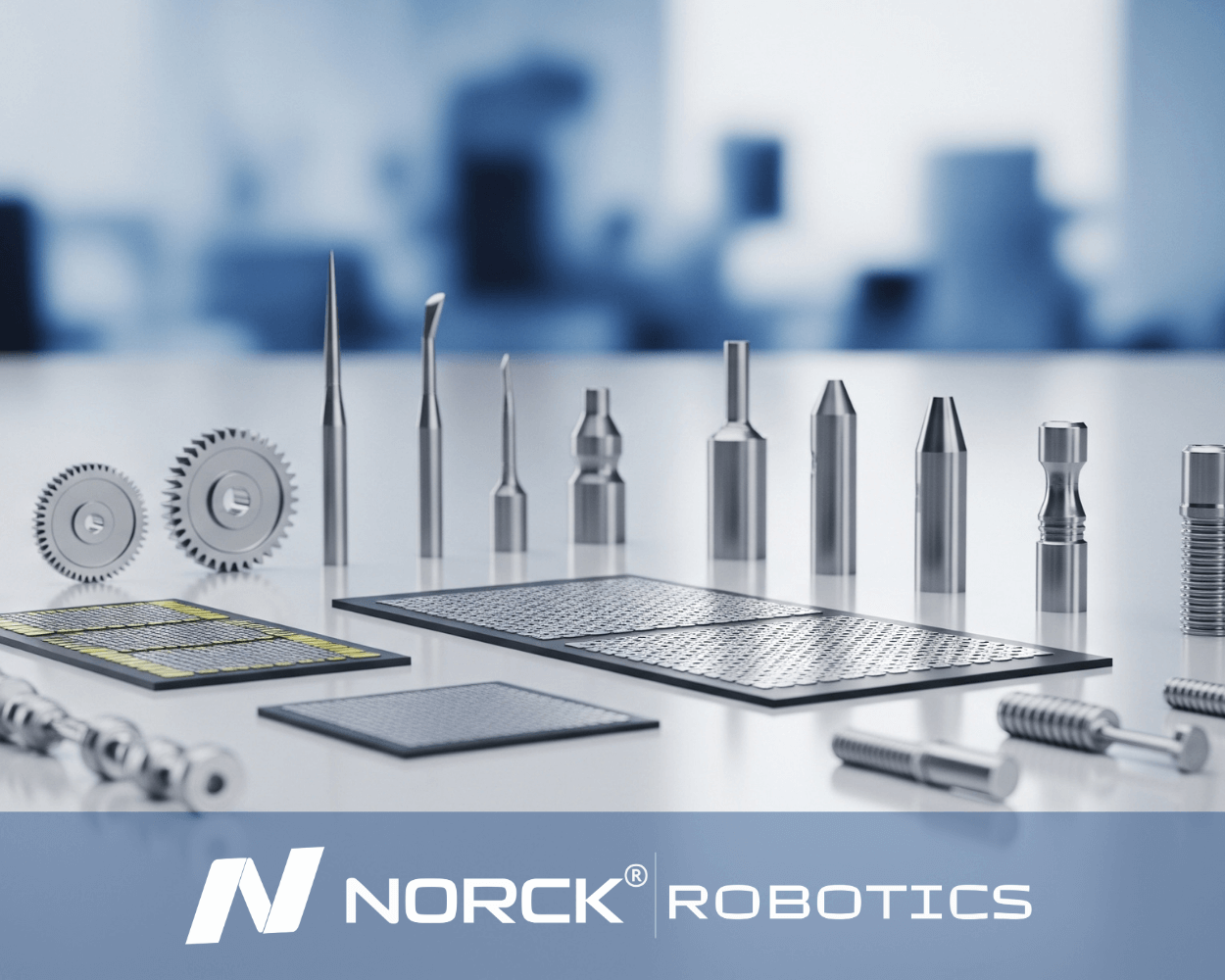
Ready to automate your future? Get a quote from Norck Robotics now!
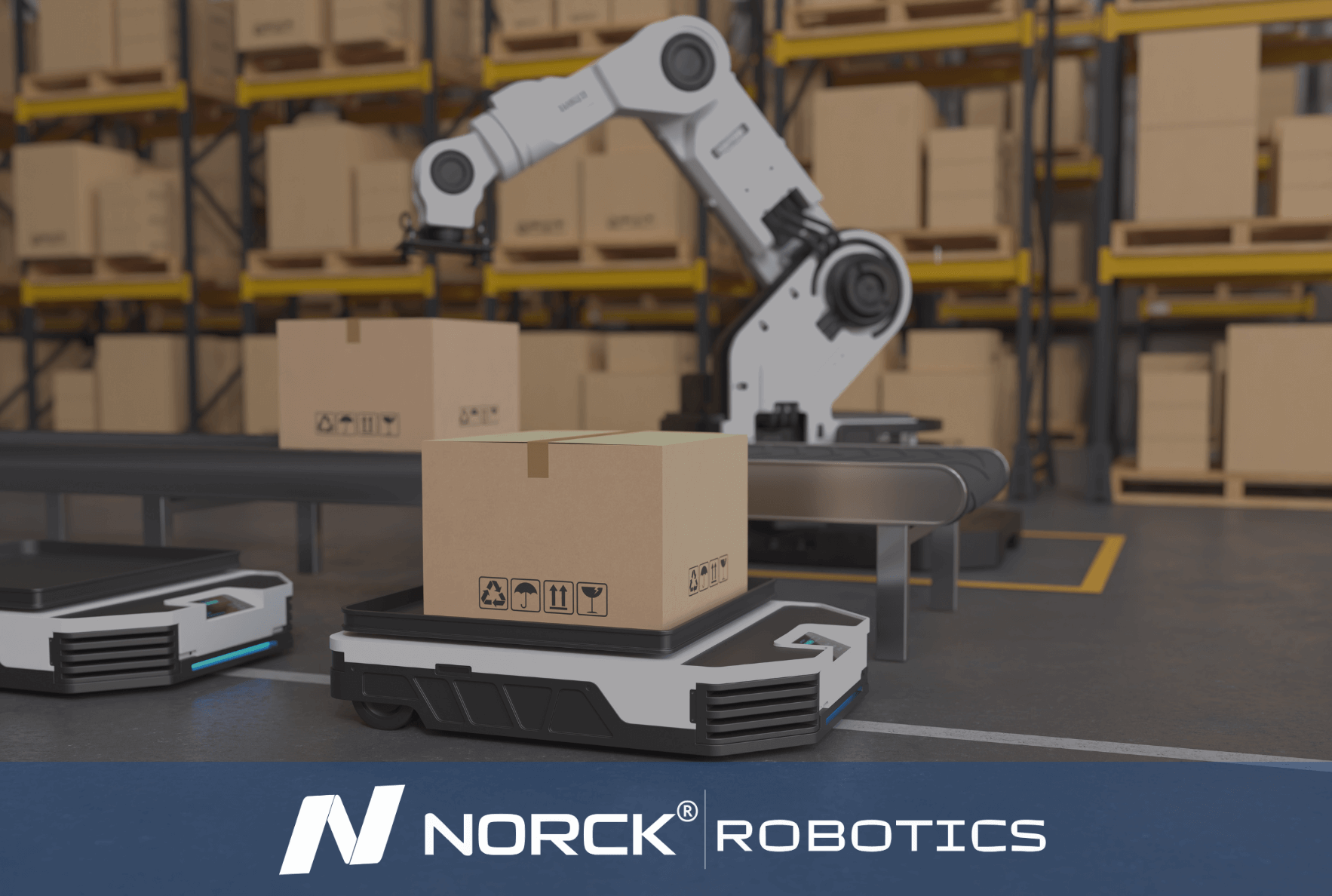
Norck Robotics specializes in providing unique robotic automation and engineering solutions designed to meet the specific operational needs of each client. Our expertise covers a wide range of industries and applications.
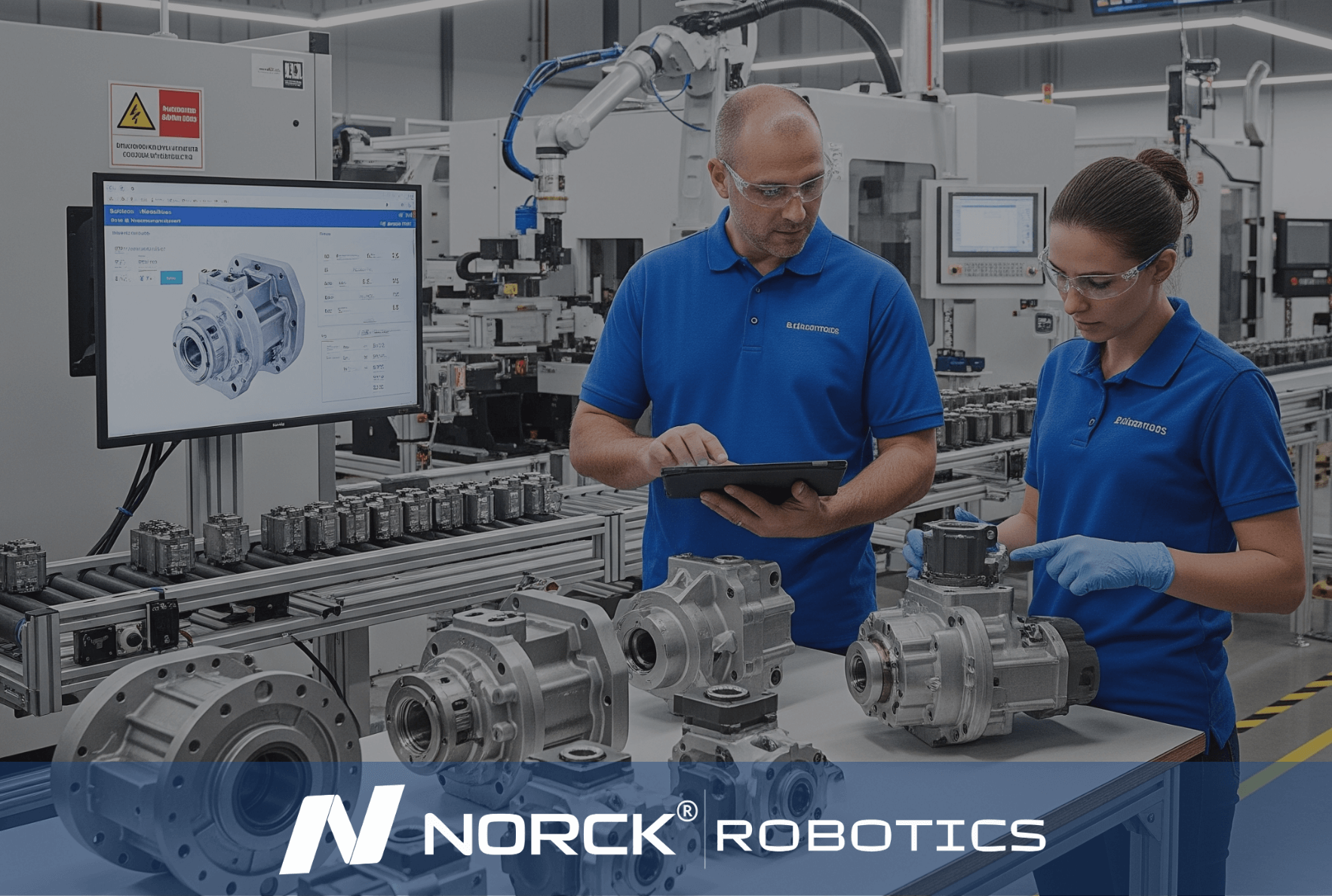
Norck Robotics delivers turnkey robotic automation and engineering solutions tailored to your specific needs across various industries.

Whether you need a single robotic cell prototype or full-scale factory automation, Norck Robotics engineers are ready to collaborate with you to bring your concept to life.

Norck Robotics engineers analyze your existing processes to provide feedback that enhances efficiency, cost-effectiveness, and productivity for robotic integration.
In medical applications, micro-machining is required for manufacturing high-precision small components. These components go into equipment where precision, biocompatibility, and reliability are essential. Some of the common medical components that may commonly require micro-machining include:
Micro-machining is required for the manufacture of surgical instruments because these have fine features and cutting edges. Forceps and scalpels are a few examples.
Micro-machining is required for orthopedic and dental implants like bone screws, stents, and prosthetic joints to ensure they meet tight tolerance and fit inside the human body.
Micro-machining is commonly carried out for catheter tips and vascular stents to achieve smooth surfaces, intricate geometries, and precise openings for features like faces for blood flow and device placement.
The internal mechanical components of hearing aids, like micro gears and housing parts, are manufactured using micro-machining processes to allow for compactness and functionality.
Hypodermic needles, biopsy needles, and cannulas usually require fine tips and uniform wall thickness, all of which are attained with micro machining.
Micro machining will be used for micro-feature details on components of diagnostic devices such as imaging equipment, endoscopes, and lab-on-chip systems.
Hence, Micro-Machined Components in the Medical Industry.Micro-machining is found in almost every field of medicine wherever a high degree of precision or reliability is needed. Some of these activities include:
They are composed of materials like titanium, stainless steel, and medical-grade plastics and are designed following medical-grade criteria.
Micro machining or precision machining is very precise and not far above a tolerance of plus/minus 1 to 5 microns (0.001 to 0.005 mm). Sub-micron level tolerance, very thin levels of tolerance, are achieved in ultra-precise component manufacturing in very advanced cases.
This accuracy is required by industries such as medical devices, aerospace, electronics, and optics, where even a tiny departure from dimensionality may affect working. Some of the common components are miniature gears, medical implants, microfluidic devices, nozzles, and electronic connectors.
Precision in micro machining depends primarily on the machines and the materials. Laser micro-machining, micro-milling, and micro-EDM are a few examples of micro-machining techniques. If leveraged well, these technologies can guarantee consistent volume production of parts within a narrow tolerance band and with an excellent surface finish.

In addition to its own expert engineering team, Norck Robotics provides access to a network of hundreds of top-tier system integrators, robot manufacturers, and component suppliers across the United States, Germany, and Europe.

Working with Norck Robotics reduces dependency on manual labor, increases production consistency, and secures your operations against unforeseen disruptions, quality issues, and fluctuations. This enhances your company's supply chain resilience.
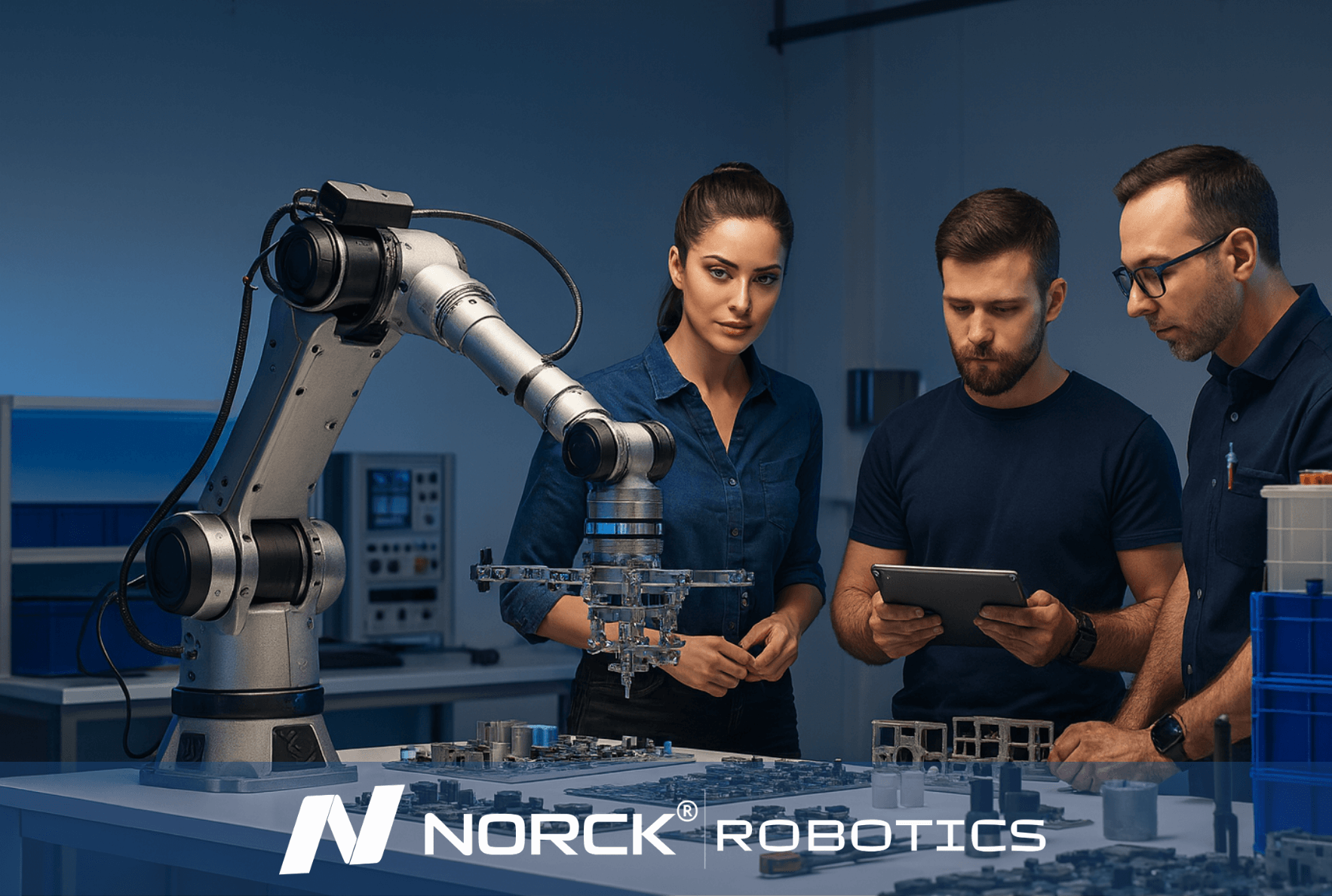
Norck Robotics advances digital automation by developing custom-designed robot grippers, advanced vision systems, and innovative simulation software. With an AI-driven, data-centric approach, it enables smarter system design, optimal performance, and predictive maintenance solutions.
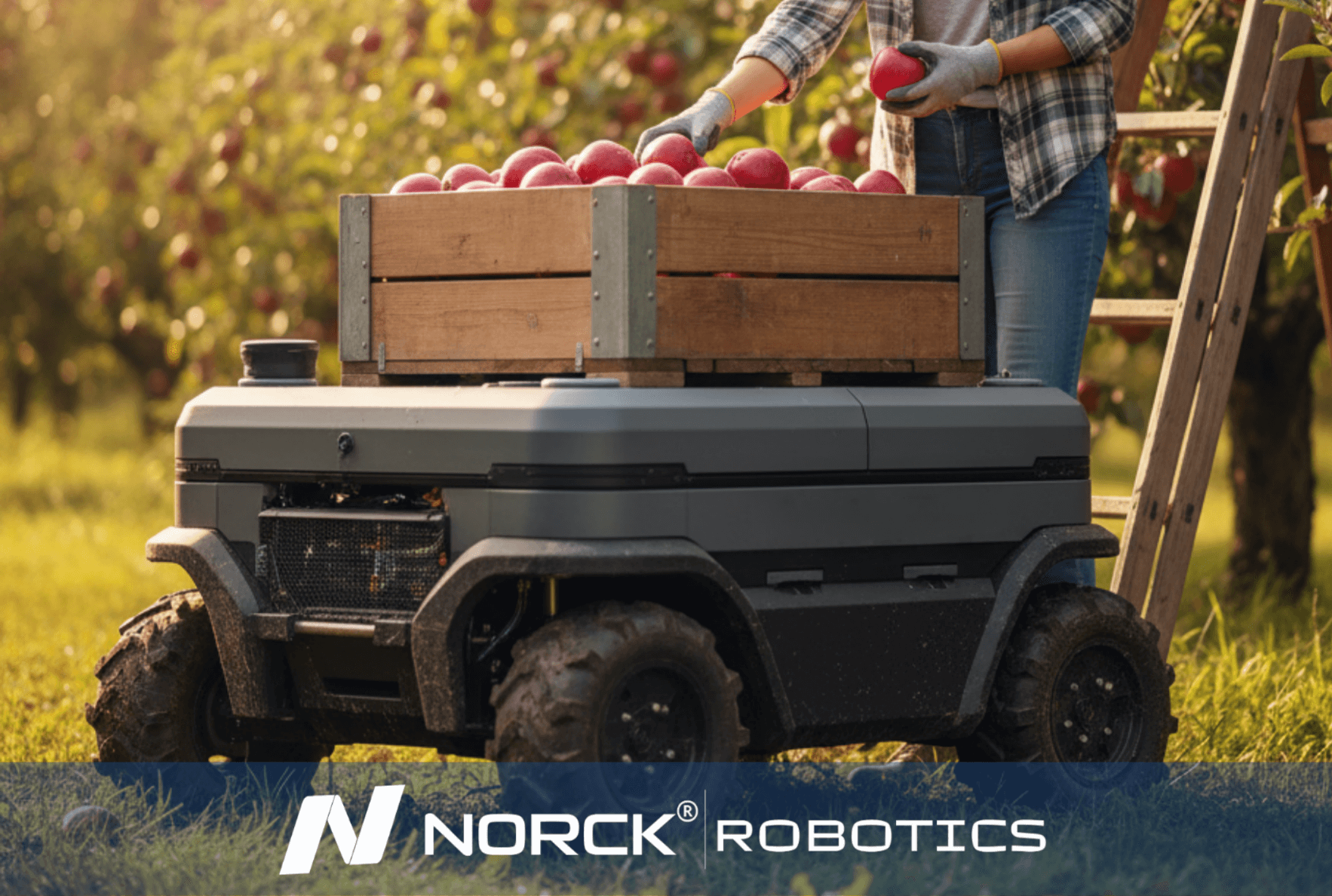
Norck Robotics encourages its partners to be carbon-neutral by reducing energy consumption and material waste through the efficiency of robotic automation, and prioritizes environmentally conscious suppliers.